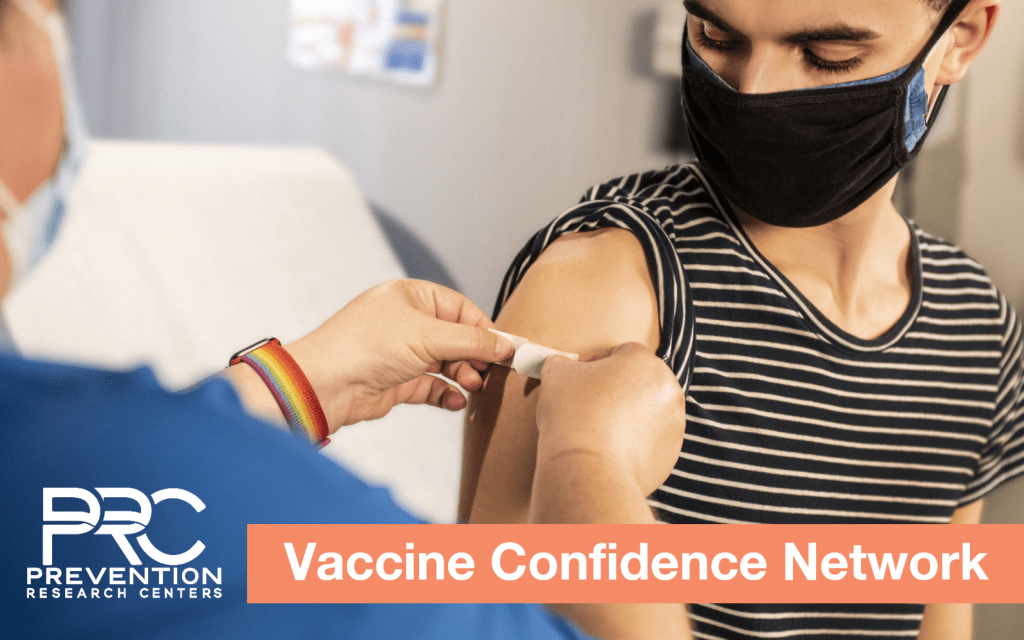
The Alabama Vaccine Confidence Network (VCN) seeks to understand the reasons for resistance and hesitancy to vaccination among vulnerable populations in Alabama, to change attitudes through messages that employ evidence-based behavioral change theory, and to understand and attempt to address barriers to getting vaccinated.
The target populations for this project are urban African Americans and Hispanics, rural African Americans and Hispanics, and those returning from incarceration to the metropolitan Birmingham area.
Systemic health disparities experienced by Black and Hispanic populations have extended to all facets of the COVID pandemic. Both populations are significantly more likely to contract COVID and to experience worse cases and death at a higher rate than their White counterparts. These conditions are compounded for those who are incarcerated or recently released from incarceration, who predominantly identify as minorities and suffer worse general health.
Sustained discrimination – from historical racism to unethical government-funded experimentation, leading to general distrust of government agencies – has impacted resistance and hesitancy toward COVID vaccination. The Alabama VCN will assess reasons for resistance/hesitancy among the target populations and develop both print and digital messaging to change behaviors and increase confidence in and uptake of COVID vaccination.
The Alabama VCN is a collaborative partnership with multiple community-based and health organizations to identify resistant/hesitant individuals in the target populations, to conduct an assessment of the reasons for their resistance, and to test messaging to ensure it resonates with each population. The messaging will serve as a feedback loop to effect behavior change and increase confidence and uptake of vaccinations among the targeted populations. It will also serve as a feedback loop to the partner health agencies as we work with them to increase vaccine confidence and to remove barriers to vaccination.
The team undertaking this project is drawn from multiple disciplines relevant to the desired outcomes, including public health, medicine, and social and behavioral sciences. We expect the outcome of this project will be a significant increase in the numbers of these vulnerable populations who are vaccinated.
Alabama Vaccine Confidence Network Project Summary
Alabama Vaccine Confidence Network Project Summary
What We’re Learning…
July-August 2021 What We’re Learning
September-October 2021 What We’re Learning
December 2021-January 2022 What We’re Learning
VCN COVID-19 Vaccine Messaging Toolkit
 The Alabama Vaccine Confidence Network and its Community Partners through the UAB Center for the Study of Community Health have worked together to create resources for Alabamians to talk about COVID-19 vaccination. These resources were created as an outcome of listening sessions and surveys that represented the voices and vaccine perspectives of Alabamians from 26 rural and urban counties across the state.
The Alabama Vaccine Confidence Network and its Community Partners through the UAB Center for the Study of Community Health have worked together to create resources for Alabamians to talk about COVID-19 vaccination. These resources were created as an outcome of listening sessions and surveys that represented the voices and vaccine perspectives of Alabamians from 26 rural and urban counties across the state.
We have put these resources together into a free COVID-19 Vaccine Messaging Toolkit. The Alabama VCN toolkit includes fact sheets, printable resources, local vaccine story cards, and social media messages to encourage COVID-19 vaccination in your community. You can download the VCN toolkit here: https://nowincluded.com/alabama-vaccine-confidence-network/
We hope you will download the VCN toolkit and will share it with other residents, leaders, and organizations in your community who are working on COVID-19 vaccine messaging.
Community Partners
Birmingham United Neighborhoods (BUN)
Offender Alumni Association
Hispanic Interest Coalition of Alabama
Acclinate
West Central Alabama Area Health Education Center
Southern Alabama Area Health Education Center
The West Central Alabama Community Health Improvement League (WCACHIL)
Follow us on Social Media



